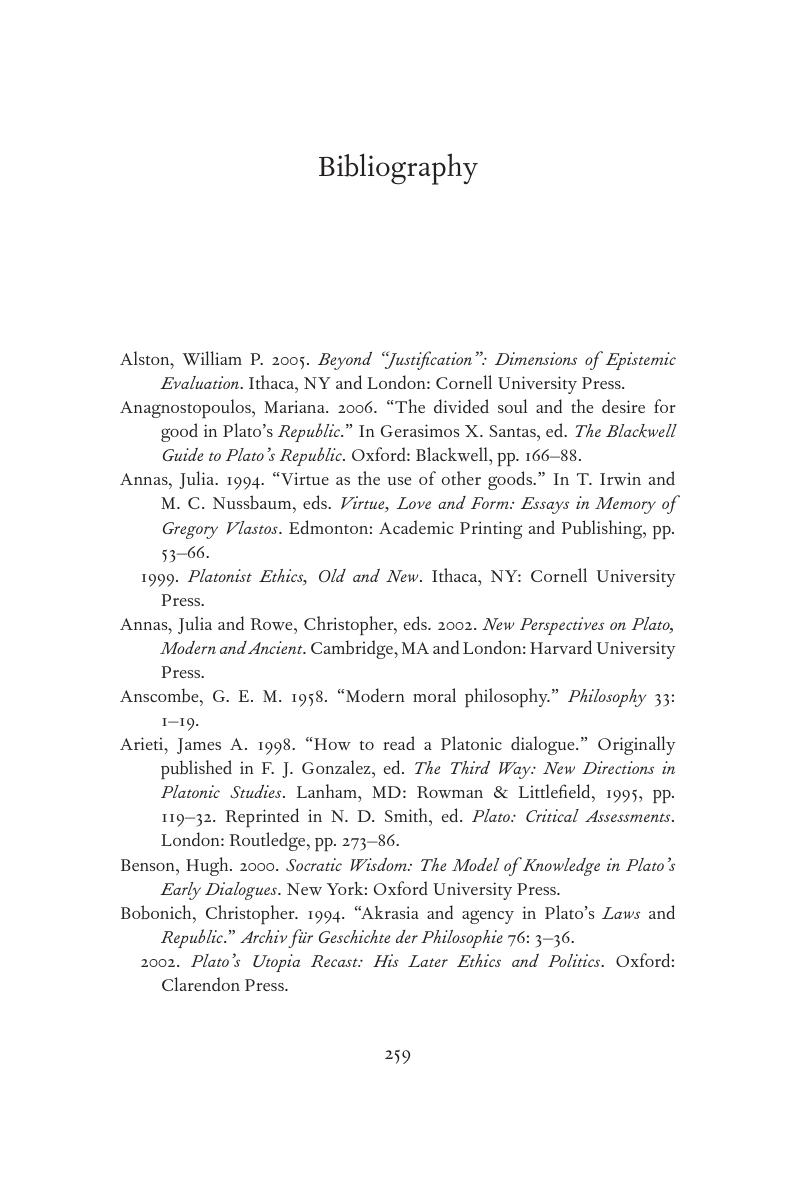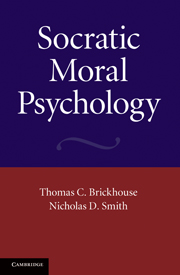Book contents
- Frontmatter
- Contents
- Acknowledgments
- Introduction
- 1 Apology of Socratic studies
- 2 Motivational intellectualism
- 3 The “prudential paradox”
- 4 Wrongdoing and damage to the soul
- 5 Educating the appetites and passions
- 6 Virtue intellectualism
- 7 Socrates and his ancient intellectual heirs: Plato, Aristotle, and the Stoics
- Appendix: is Plato's Gorgias consistent with the other early or Socratic dialogues?
- Bibliography
- Index of passages
- General index
- References
Bibliography
Published online by Cambridge University Press: 04 August 2010
- Frontmatter
- Contents
- Acknowledgments
- Introduction
- 1 Apology of Socratic studies
- 2 Motivational intellectualism
- 3 The “prudential paradox”
- 4 Wrongdoing and damage to the soul
- 5 Educating the appetites and passions
- 6 Virtue intellectualism
- 7 Socrates and his ancient intellectual heirs: Plato, Aristotle, and the Stoics
- Appendix: is Plato's Gorgias consistent with the other early or Socratic dialogues?
- Bibliography
- Index of passages
- General index
- References
Summary

- Type
- Chapter
- Information
- Socratic Moral Psychology , pp. 259 - 267Publisher: Cambridge University PressPrint publication year: 2010



